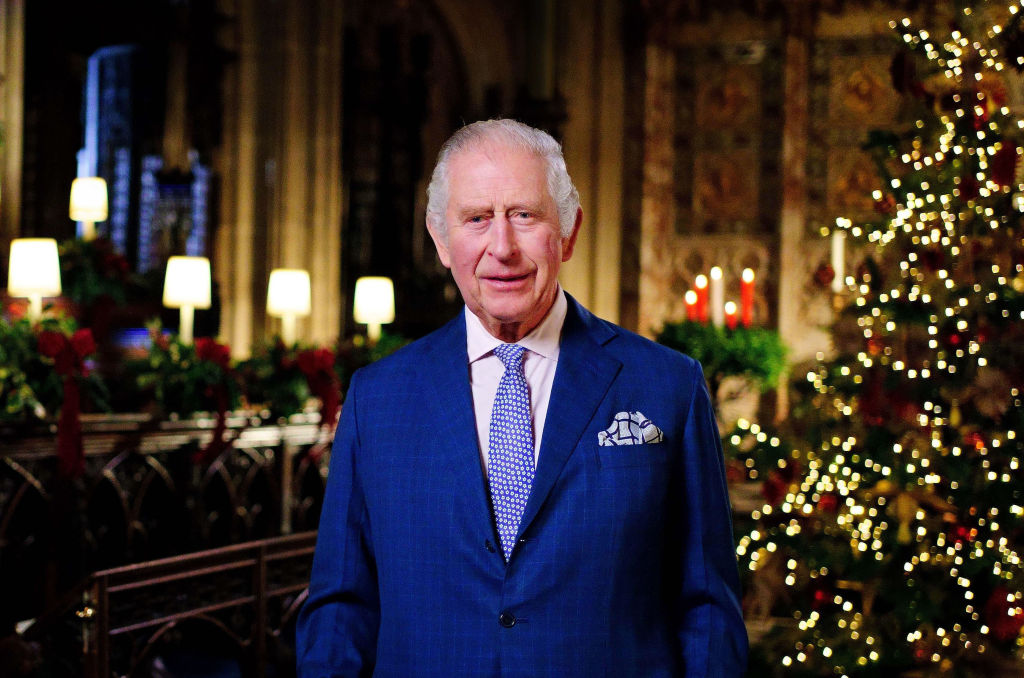For the first King’s speech since 1951, the King might have been forgiven for striking a downbeat note in his inaugural address to the nation. After all, this year has seen the death of his mother, his continuing estrangement from his publicity-hungry younger son, and, for good measure, the fulfilment of his long-held desire to expel the not-so-grand old Duke of York from public life. Yet the speech – which was recorded on 13 December from the Quire of St George’s Chapel in Windsor, conveniently between the two instalments of the Netflix series in which Harry and Meghan did their best to humiliate the Royal Family – was far from the miserable or score-settling homily that many might have expected.
It began, inevitably, with a full-throated rendition of the National Anthem sung by the choir of St George’s: a reminder, as if it were needed, that some things never change. And practically the first thing that the King did was to remind his audience of the fact that he was speaking only yards from where his mother and father had been laid to rest. He described Christmas as ‘a particularly poignant time for those of us who have lost loved ones,’ and stressed the late Queen’s Christian faith and her general belief in people, ‘one that I share with my whole heart’. It was an intelligent, measured opening, drawing on his own experiences and placing himself in a line of continuity, even while he stressed his credentials as a national monarch: teachers, soldiers and nurses all got a mention.
It was a socially engaged address. He talked warmly and compassionately of anxiety, of people not being able to pay their bills and of the importance of food banks and other charitable organisations. This was a different kind of speech to the ones that his mother had made. It felt, at times, almost like a New Labour, circa-2002 Tony Blair address, stressing its credentials for compassion and kindness. And when he talked of how he had visited Bethlehem, ‘fulfilling a lifelong wish’. It was deliberately staking out territory that his mother had never attempted to go near: a religious and political identification that nonetheless respected the country’s widespread atheism, even as he spoke of his Christian-inspired wish for finding hope in the future.
He wished us a Christmas of peace, happiness and everlasting light. It was a brief speech – no more than five minutes – and although the Prince and Princess of Wales were featured and mentioned, there was no allusion to the troublesome Duke and Duchess of Sussex. Which, in the circumstances, is entirely understandable. Christmas, after all, is not a time for vendettas or resentment. Yet what was so distinctive about the address – complete with footage of the Royal Family reaching out to different communities, doing walkabouts (without his being egged) and generally identifying with the modern world – is that it clearly shows the King’s future vision for Britain, if you will.
Rather than his mother’s sometimes specious platitudes, it was a crisply delivered address – showing that he’s comfortably the best public speaker in ‘the Firm’ – that also tacitly reminded his audience, both at home and overseas, that while his son is continuing to yell about ‘his truth’, the institution that he made such a dramatic show of leaving is simply getting on with the job, to the best of its abilities. It was a short, pointed and very effective speech, and I suspect that everyone who watched it will have thought ‘job done’. God save our gracious King, indeed.






Comments